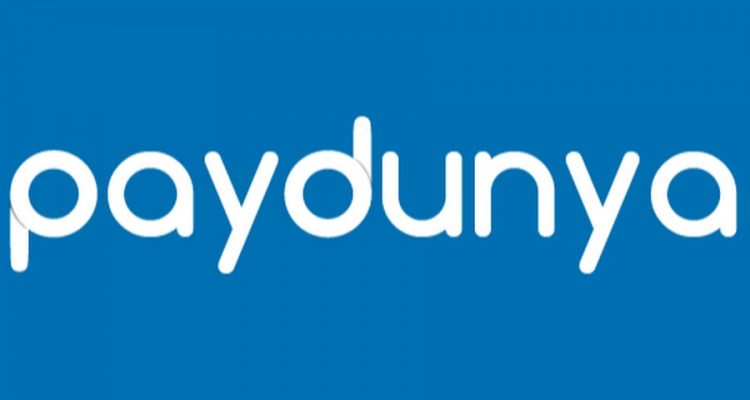À l’épreuve du Coronavirus (COVID-19) et à l’ère du numérique, nombreuses sont ces marques qui sortent du lot, des sentiers battus. C’est le cas des « fintechs ». Ce sont des entreprises (parfois start-up) qui officient dans le domaine de l’innovation technologique et financière, avec un intérêt porté sur le paiement online, le cash, voire même le mobile money. En Afrique, On peut citer quelques-uns qui ont fait parler d’eux durant la décennie : We Cash Up du cameroun, M-PESA au Kenya, Simple Pay au Nigéria ou encore PayDunya au Sénégal. Nous nous intéressons à la plateforme Paydunya, et à quelques facteurs clés de succès de cette start-up africaine.
Naissance
PayDunya voit le jour en 2015; une idée de Aziz Yerima, jeune virtuose béninois alors fraîchement sorti de l’École Supérieure Multinationale des Télécommunications de Dakar au Sénégal. Tout part d’un constat selon lequel en Afrique, tout le monde ou presque (à 90%) possède un smartphone. Le projet de Yérima s’inscrit plus précisément dans le souci d’accompagner les commerçants locaux dans la vente de leurs produits de consommation, dans tout le territoire sénégalais d’abord, et à travers le monde par la suite. Cependant, la startup est confrontée à quelques difficultés liées notamment à l’e-banking, car avec un site web, les transactions se font en ligne certes, mais elles se limitent aussi à un compte, une carte bancaire, ou à Paypal. Problème : le taux de bancarisation à cette époque est relativement bas, et la population locale, dans sa majorité, ne s’est pas encore familiarisée à ces usages.
Par contre, en matière de transfert d’argent, un autre service fonctionne très bien dans ce pays de l’Ouest de l’Afrique, comme dans plusieurs pays africains d’ailleurs. Il s’agit du Mobile Money. Voici alors, l’un des premiers facteurs de succès de la startup PayDunya.
La trilogie PayDunya
La force de PayDunya réside dans son service multi potentiel voire multifonctionnel, avec une trilogie qui tourne autour de l’achat et du paiement/versement qui s’effectuent en ligne, et du transfert d’argent (par mobile money) ; jamais deux sans trois !
Le premier élément de cette trilogie est l’API, interface de programmation informatique qui permet les transferts d’argent par les services de monnaie mobile, directement sur un site web ou une application mobile. Notons aussi que les frais de transactions semblent accessibles (4% sur le site web, 5% sur les réseaux sociaux + 50 FCFA et 10% pour les ventes de biens numériques).
Le deuxième élément consiste à la création des “shops” gratuitement sur les réseaux sociaux comme Facebook et WhatsApp et d’effectuer des ventes sur des sites d’annonces, pour les commerçants n’ayant pas les moyens de se faire concevoir un site web. Se dessine alors une solution dite « Clic and Pay » car d’un côté comme de l’autre, on peut effectuer achats et ventes en étant connecté, et ce, sans avoir besoin de passer par un site web.
Enfin, la trilogie voit son épilogue avec le paiement à la livraison (PAL ou PayDunya PAL) pour des produits et biens physiques. PayDunya devient alors une sorte de PayPal africain et mieux encore, les utilisateurs pourraient effectuer des actions de monitoring pour les transactions de masse.
Autre facteur clé de succès de PayDunya : la sécurité. Tout comme chez Freelance, le vendeur reçoit son versement après que le client ait été livré. La transaction est donc bloquée temporairement par la plateforme, en attente du message de notification, accusé de réception chez ledit client.
Une offre adaptée au marché local
La success story de PayDunya vient ainsi du fait qu’elle a su adapter son offre au contexte local, en tenant compte des attentes du marché et des entreprises africaines, utilisateurs actuels et potentiels de la plateforme. Malgré son expansion géographique timide, puisqu’uniquement présente dans 3 pays de l’Afrique de l’Ouest (dont le Bénin, la Côte d’Ivoire et le Sénégal), les chiffres parlent d’eux-mêmes : selon Finance Digitale, PayDunya aurait effectué plus d’un million de transactions en 2018; pour un volume de plus de 4 milliards de FCFA, avec pas moins de 200 clients.
En résumé, la réussite de PayDunya, est dûe à sa capacité à créer de la valeur, en ayant associée achat et paiement en ligne au Mobile Money, en passant par des solutions digitales comme le Social Shopping et les ventes sur les sites d’annonces. PayDunya a surtout compris le marché africain et contextualisé ses offres aux attentes et besoins réels des entreprises locales. La startup devra cependant continuer à batailler ferme pour réussir malgré la méfiance des populations locales quant à la réalisation d’opérations financières via le numérique. Souhaitons-leur bon vent !


Leave a Reply